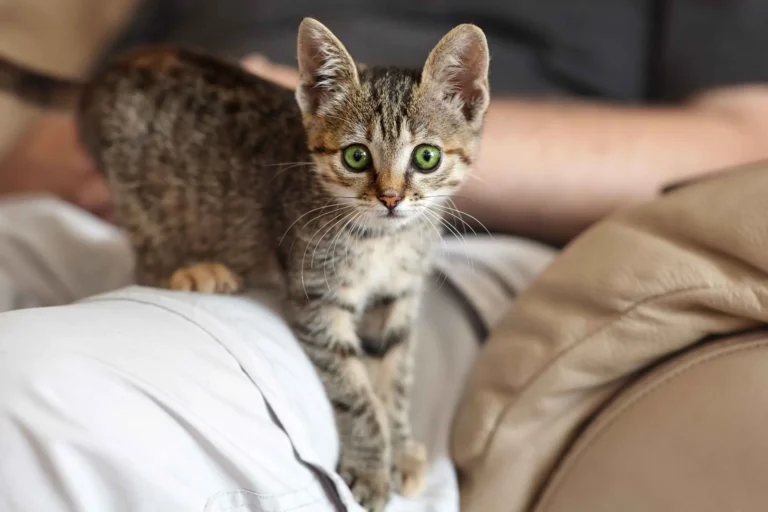Bringing a Cat into Your Life: What You Need to Know
Are you thinking about getting a cat? Cats make wonderful companions and can bring so much joy to your life. However, before you bring a furry friend into your home, there are a few important things you need to consider. This blog post will guide you through what you need to know before bringing a cat into your life.
Long-Term Commitment
Cats can live for 15 years or more, so bringing a cat into your life is a long-term commitment. You need to be prepared to care for them throughout their entire life. Consider your future plans and make sure you can provide a stable and loving home for your cat.
Bringing a cat into your life can be a rewarding experience, but it’s important to consider all the factors before making the decision. Take the time to assess your lifestyle, financial situation, and living arrangements. If you are ready for the responsibility, a cat can bring endless love and companionship into your life.
Choosing the Right Cat
Selecting the right cat for your lifestyle is crucial. Different cat breeds come with varied activity levels, temperaments, and grooming requirements. Consider whether you prefer a more independent cat, an affectionate lap cat, or an active and playful companion.

The Adoption Option
Adopting a cat from a shelter or rescue organization is a gratifying choice. It not only provides a loving home to a cat in need but also ensures that you aren’t supporting harmful breeding practices. Shelters and rescue groups have a variety of cats, including kittens and older cats, with diverse personalities and backgrounds.
Financial Responsibility
Owning a cat comes with financial responsibilities. You will need to budget for food, litter, toys, and regular veterinary check-ups. Cats may also require vaccinations, flea treatments, and spaying or neutering. It’s important to consider these costs before bringing a cat into your home.
The Importance of Proper Nutrition
Cats are obligate carnivores, which means their diet should primarily consist of meat. High-quality cat food should be the foundation of your cat’s diet. Avoid vegan or vegetarian diets, as they don’t meet a cat’s nutritional requirements. Wet food, dry kibble, or a combination of both can be suitable, but consult your veterinarian for specific dietary recommendations.
Read also: How To Feed A Cat.

Prepare Your Home
Make your home cat-friendly by providing ample space for your cat to move around, explore, and play. Cats need stimulating environments, so consider cat trees, scratching posts, interactive toys, and cozy resting spots. Additionally, remove potential hazards such as toxic plants, chemicals, and small objects that your cat could ingest.
Allergies
Before getting a cat, make sure no one in your household is allergic to them. Cat allergies can cause sneezing, itching, and even respiratory problems. If you or someone in your home is allergic, it’s best to consider a hypoallergenic breed or explore other pet options.
Dedicate Your Time
Cats thrive on attention and interaction, so be prepared to invest time in play, affection, and companionship. Regular play sessions and bonding time help strengthen the relationship between you and your cat. It’s also an excellent opportunity to stimulate your cat’s mind and body.

Healthcare Matters
Regular veterinary care is essential for cats to maintain their health and well-being. Cats need vaccinations, parasite prevention, and dental care. If your cat isn’t already spayed or neutered, it’s important to discuss this procedure with your veterinarian.
Training and Socialization
Training and socialization are essential for a well-adjusted cat. Litter box training is relatively straightforward, but you should also be prepared to address behavioral issues. Socialization with other pets and people is vital for your cat to feel comfortable and confident in various situations.
Litter Box Setup
Cats are meticulous about their litter box, so it’s crucial to provide a clean and easily accessible box. Proper maintenance includes daily scooping and regular cleaning. The ideal number of litter boxes in a household is one per cat, plus an additional box.

Grooming Needs
Cats have varying grooming needs depending on their breed. Long-haired cats may require daily brushing to prevent matting and hairballs. Short-haired cats typically require less grooming. Regular grooming not only keeps your cat’s coat in good condition but also offers a valuable bonding opportunity.
Patience and Love
Building a bond with your cat takes time and patience. Cats have their own unique personalities and may take time to adjust to their new home. Shower them with love, affection, and positive reinforcement to build a strong and trusting relationship.
Understand Your Cat's Communication
Cats communicate through body language and vocalizations. Learn to understand your cat’s cues, such as purring, tail position, and ear orientation, to decipher their moods and needs. By tuning into your cat’s signals, you can create a more harmonious living environment.
Adopting a cat is a lifelong commitment, and your feline friend will depend on you for care and companionship. Be ready to invest time, love, and resources into ensuring your cat’s happiness and well-being throughout their life.
In conclusion, bringing a cat into your life can be an incredibly rewarding experience. However, it’s crucial to be well-prepared for the responsibilities that come with cat ownership. Understanding your cat’s needs, providing a safe and stimulating environment, and being ready to invest time, love, and resources will help you and your cat build a strong and loving bond that can last for many years to come. Before adopting, consider all these factors to ensure a happy and fulfilling life for both you and your new feline companion.



Pingback: Adopting a Senior Cat: The Rewards of Giving an Older Cat a Home
Pingback: When to Shift Your Kitten to Adult Cat Food